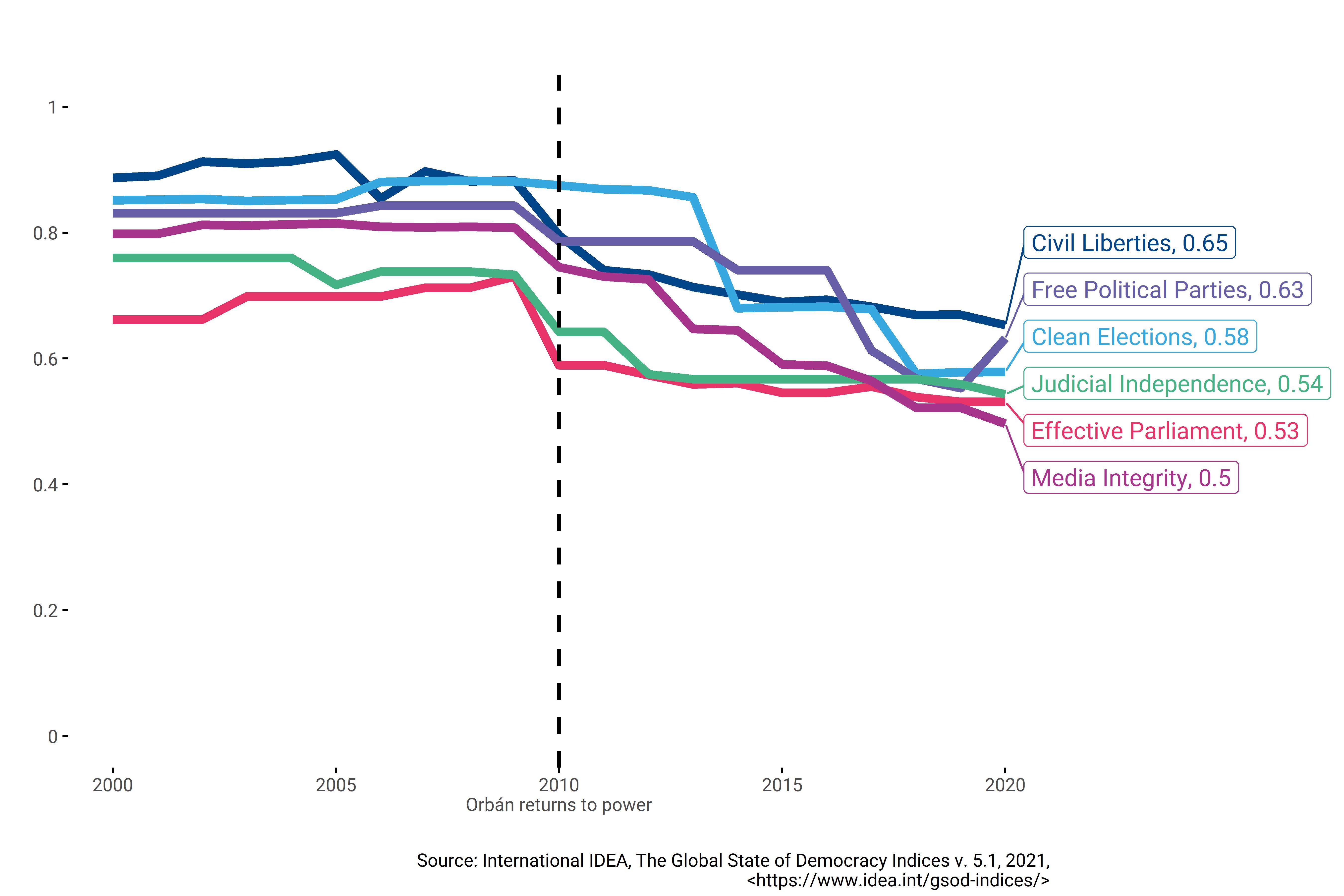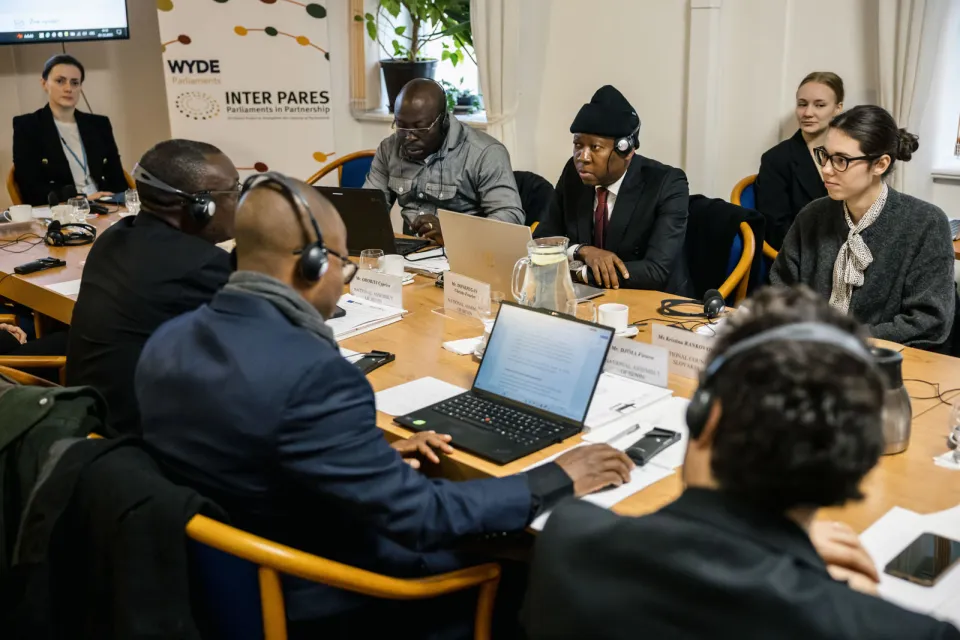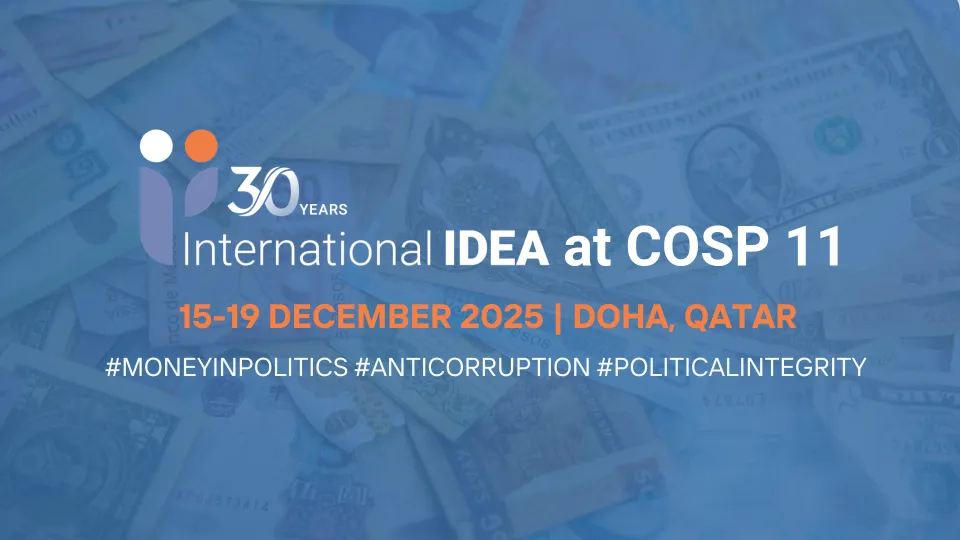Orbán’s Election Victory Sheds New Light on the ‘Copenhagen Dilemma’

Disclaimer: Opinions expressed in this commentary are those of the author and do not necessarily represent the institutional position of International IDEA, its Board of Advisers or its Council of Member States.
The parliamentary election in Hungary on April 3 – which, according to international observers, favoured the ruling party – resulted in Prime Minister Viktor Orbán and his Fidesz party securing another four years of power. In his victory speech, Orbán declared: “Our win is so huge you can see it from the Moon, never mind from Brussels”. His sneer at Brussels is nothing new; Orbán has long criticized the European Union and has openly expressed his desire to build an ‘illiberal state’.
During Orbán’s current 12-year spell as Prime Minister, Hungary has experienced severe democratic backsliding, as shown by IDEA’s Global State of Democracy Indices. Several attributes have seen significant declines since he returned to power in 2010.

This backsliding has serious implications for the democratic legitimacy of the EU. Since all member states have a say in decisions of the European Council and the Council of the European Union as well as in the make-up of the European Commission, the democratic legitimacy of these decisions are largely dependent on national governments being democratic. The infringements on Media Integrity and Civil Liberties by Orbán also limit the ability of the people of Hungary to cast informed votes in European Parliament elections, which undermines the legitimacy of Hungarian MEPs. The reality is that politicians with dubious democratic credentials currently have the power to influence the lives of all European citizens. The fact that some countries, such as Hungary and Poland, have been backsliding without much actual resistance from the EU has become known as the ‘Copenhagen Dilemma’.
The dilemma is named after the Copenhagen Criteria (Treaty of the European Union - TEU article 2), and refers to the EU’s inability to address states’ actions that undermine democracy, rule of law, human rights and protection of minorities. The EU could choose to suspend voting rights of a member state, but this relies on a unanimous vote by all member states. While this has not been put to the test, we would expect Hungary’s ally Poland to veto such a vote, as it has also been at odds with the EU. While many welcome the possibility of an inervention by the European Court of Justice, concerns have been raised that this risks politicizing the judiciary and undermining its role as a neutral arbiter.
Although it seems like Hungary will be stripped of EU funds due to rule of law breaches, it remains to be seen if this pressures Orbán to improve judicial independence or if it just further fuels anti-EU opinion.
Orbán’s rule is not only an internal legitimacy problem for the EU. His illiberal agenda and support for President Putin undermines the EU’s credibility to act as a normative power on the global scene. Orbán has called Ukrainian President Zelensky an ‘opponent’, and he is the only leader within the EU to publicly accept Putin’s demand of paying for Russian gas in rubles. Time will tell if sanctions are the solution to the Copenhagen Dilemma, or if Brussels will continue to watch as Hungary sinks deeper into autocratization.




